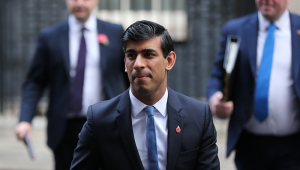In its report 100% business rate retention pilots: what can be learnt at what cost? the Institute for Fiscal Studies has pointed out if that revenue had flowed into central government - as usual - other councils could have benefited from a proportion of that money.
David Phillips, associate director at IFS and an author of the report, said: “The English councils piloting 100% business rates retention are set to gain hundreds of millions of pounds in extra funding as a result this year.
“While many of those chosen as pilots would have gained less, such a funding boost would have been welcomed by councils that have not been chosen as pilots.”
If the money was distributed to all councils in England according to spending needs - using the ‘relative needs formula’ - the average equal gain would be £16 per person, the IFS report said.
The funding boost for 100% business rates pilots equates to £49 per person in London, £59 per person in Berkshire but just £5 per person in Liverpool, it also stated.
Councils outside the pilot remain on the 50% business rates retention scheme, which was introduced in 2013-14. The funding boost for those on the pilot, which started in April 2017, is related to the 50% extra they are able to keep from business rates raised in their area.
The IFS also believed the ‘no detriment’ clause in the pilot scheme means the “scope for learning from the pilots is likely to be limited”.
Because the councils will not be able to lose out from being the pilot “councils are not facing the risks that they would under nationwide 100% retention”, the IFS highlighted.
The government has pledged if any council gets less than if they had remained on the 50% business rates retention scheme it will stump up the difference.
Neil Amin-Smith, research economist at the IFS and another author of the report, said: “Given pilots are guaranteed for a year only, and councils are prevented from losing out, the potential for learning about the impact of a long-term 100% business rates retention scheme is limited.”
He also warned: “The combination of the voluntary nature of the pilots, and excess demand from councils to become pilots, may mean the government can use them to make changes to the scheme that would be much more controversial if imposed centrally.”
The IFS’ revenue forecasts, calculated using national non-domestic rate figures, showed that pilot councils would stand to gain £650m even when allowing for a potential 2.3% overestimate.











